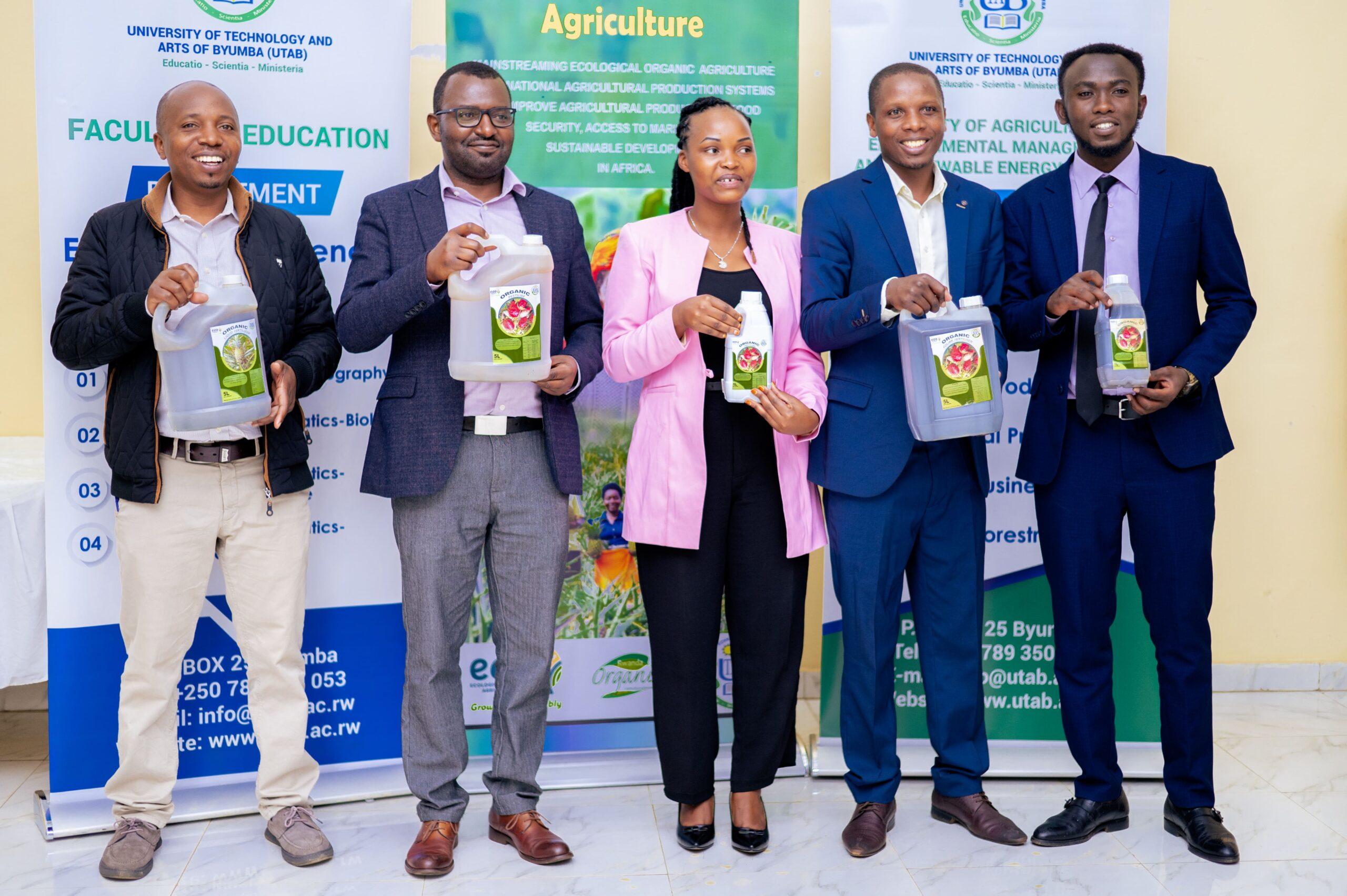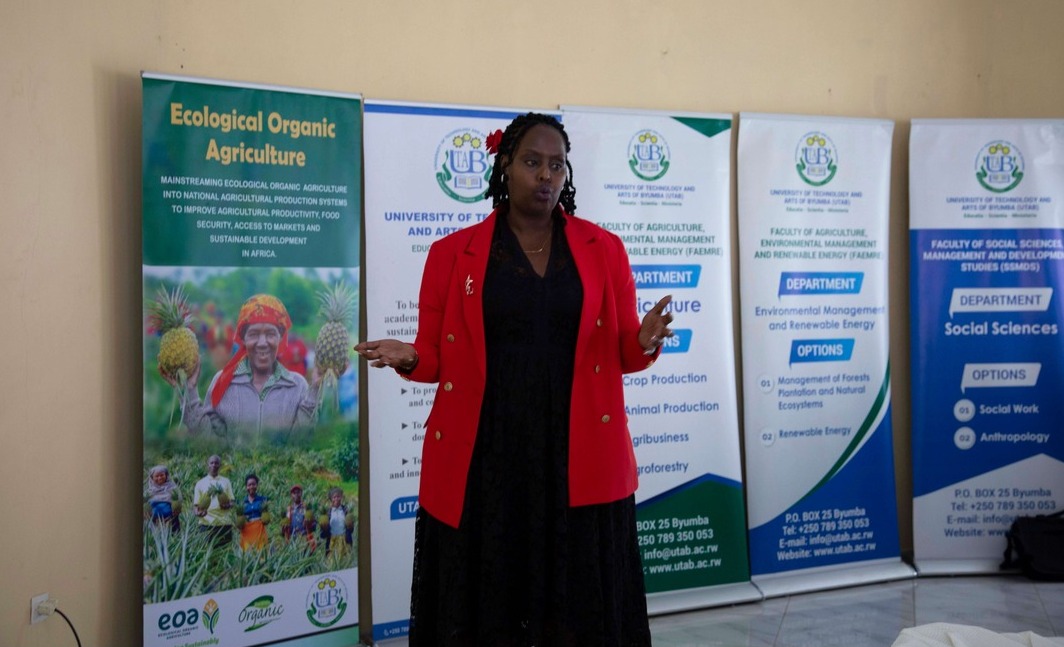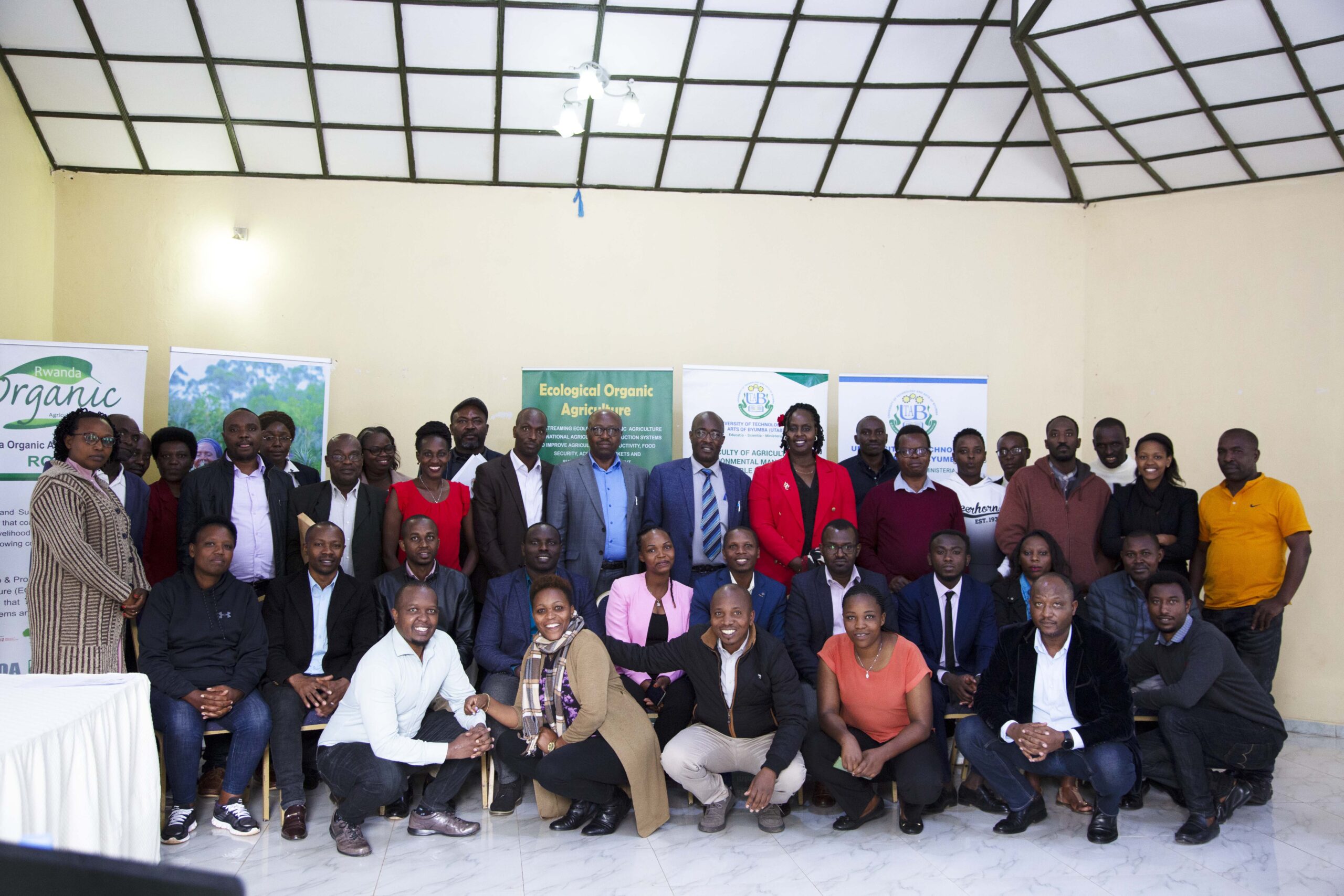
Since September 2021, the University of Technology and Arts of Byumba (UTAB) in partnership with Rwanda Organic Agriculture Movement (ROAM) and the Bioision Africa Trust has been involved in the implementation of the Ecological Organic Agriculture Initiative (EOA-I) project funded by the Swiss Department for Development and Cooperation “SDC”. In this project, the university is implementing the Pillar I “Research and applied knowledge” which is composed of two outcomes:
- Information and knowledge needed by EOA actors along value chains generated and collated for dissemination
- EOA research information and knowledge processed and validated for dissemination.
In the first phase of the project, UTAB Lectures and students conducted a baseline study on the value chain analysis to identify knowledge gaps, needs and priorities of various actors with a special focus on women, youth and marginalized groups along pineapple and strawberry value chains in Gakenke, Rulindo, Muhanga and Kamonyi Districts. In the second phase of the implementation of this project, it was expected that four (4) research could be conducted in order to address the gaps mentioned in the previous baseline study according to the following project specific activities:
- Undertake scientific research to generate information and knowledge to address the gaps, needs and priorities identified during baseline.
- Produce a report on the information from research findings that addressed the gaps, needs and priorities identified.
- Produce, validate and report the information and knowledge from the research findings using appropriate strategies.
- Publish scientific papers of the best EOA experience from the research findings that addressed the identified gaps and needs in the international scientific journals.
Therefore, in the framework of this project to undertake scientific research to generate information and knowledge to address the gaps identified during the baseline study, UTAB conducted a number of researches related to EOA technologies and practices. The research topics are also as follows:
- Intercropping pineapple with Desmodium intortum and sweet potatoes for sustainable mulching in organic highland pineapple production,
- Effectiveness of pest repellent crops on pest managements in strawberry farming,
- Comparative study of different homemade organic fertilizers on pineapple production and
- Comparative study of different homemade organic pesticides on strawberry production.
Yet in the framework of the good smoothness of the implementation of this EOA-I project, a one-day validation workshop on Ecological Organic Agriculture research findings was organized at UTAB. This special event was gathering over 50 stakeholders from UTAB senior researchers and different public and private institutions working in the sector of Agroecology and or similar domain. The research team consisted of four lecturers and two students, all from UTAB. They developed three homemade technologies out of which two types of organic fertilizers, one organic foliar fertilizer, and two types organic pesticides were produced based on local plant materials and animal wastes. The laboratory analysis was carried out to confirm the conformity of these products. The results from the field trials revealed that these organic products could be a prominent alternative to chemical fertilizers and pesticides and in return will help organic farmers to increase their productivity through ecological organic agriculture.

In his welcome remarks, the Vice Chancellor of UTAB Father. Dr. MUNANA Gilbert, O.P welcomed the stakeholders to the workshop and thanked ROAM, Lecturers and students for the good job that they have done and the whole team of EOA partners for their great commitment to promoting Ecological Organic Agriculture in Rwanda.

The ROAM CEO Madam Lise Chantal Dusabe thanked UTAB Lecturers and students for the great job that they have done well. She also encouraged all lecturers and researchers to do more research in the area of Organic Agriculture. She further more explained about ROAM, its history, its key areas of operations, and its mandate as a national umbrella organization that provides leadership and professional advisory services to all stakeholders in the organic agriculture sector in Rwanda.

